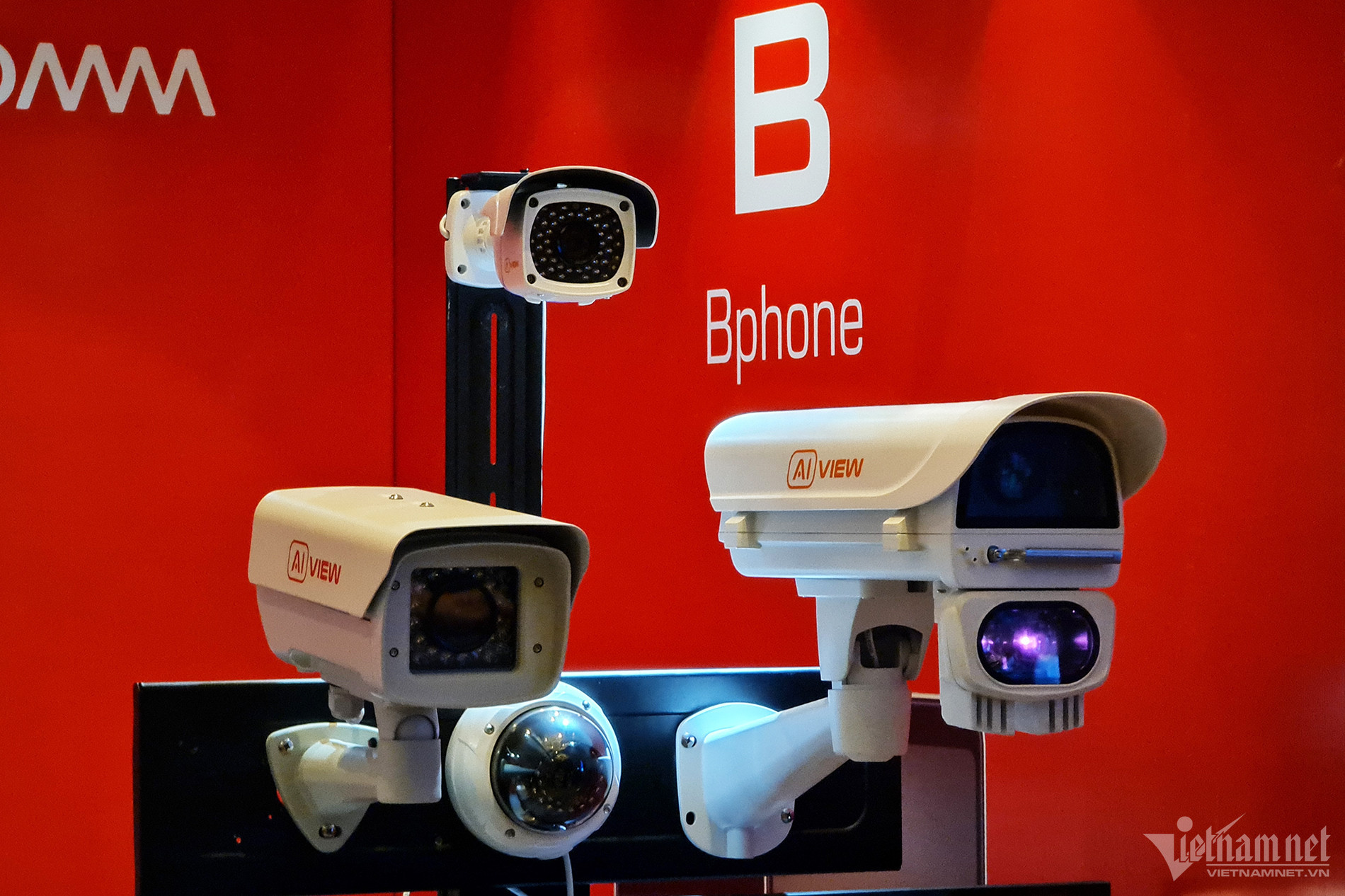
VietNamNet on May 22 cooperated with the Authority of Information Security (AIS) to organize a panel discussion about the surveillance camera market and standards for the products.
The discussion attracted representatives of AIS and tech firms such as Viettel Telecom, VNPT Technology, Pavana, Hanet, Vconnex and Lumi, as well as reporters from 40 newswire services.
Thai Khang, Journalist, VietNamNet: Could you please describe the Vietnamese security camera market?
Nguyen Trung Kien, CEO, Pavana: The revenue of the market was $175 million in 2023. Household-use cameras accounted for 48 percent in revenue and 60 percen in quantity. Most products sold were low-cost, priced at VND200,000-below VND1 million.
According to Statista, in the world market, 70 percent of products are consumed by businesses and governments, only 15 percent by households. In Vietnam, 50 percent of products are used for surveillance at households. The situation in Vietnam is contrary to the world’s trend, which shows that the market segment for businesses and governmental organizations remains fledgling and there are still many opportunities for manufacturers.
Nguyen Tuan Anh, president, Lumi Vietnam: Lumi holds a very small market share. Our advantages are smarthome and synchronized solutions, while it is very difficult to provide products separately such as camera cloud.
Foreign-made cameras are dominating the home market with @ market share of 90 percent and we need to think about how to regain the market.
Nguyen Dang Trien, Viettel Telecom: Viettel Telecom is a telecom carrier, so our approach is selling surveillance cameras to households together with FTTH (fiber to the home) service and broadbad fixed lines.
The number of products sold together with FTTH accounts for 90 percent of our sales. We don’t intend to sell cameras separately. If we do, selling prices won’t be competitive enough.
VietNamNet: Could you please tell us about cybersecurity risks from surveillance cameras?
Vu Ngoc Son, CTO, NCS (VN National Cybersecurity Technology Corporation): In terms of cybersecurity, cameras can be likened to a kind of special computer as it can listen, see and think (if it is integrated with AI), and discover objects and space that it observes. Cameras never turn off, and they are rarely patched, and have few updates with patches and anti-virus software. If attacked, they won’t be protected.
While many standards and regulations are set for computers, there is no such thing for cameras.
In 2023, some hackers offered to sell the right to log in to camera systems in Vietnam, including a system with 100,000 cameras. Clients had to pay a small amount, just VND800,000, to access 15 cameras.
Therefore, we have proposed to MIC that the ministry set technical regulations on cameras and other devices to fight against information leakage.
VietNamNet: MIC has set technical criteria to ensure information security applied to surveillance cameras. Could you please tell us if the criteria can settle the problems that camera manufacturers have complained about?
Tran Dang Khoa, deputy head, AIS: We faced difficulty when building the criteria. No international agency and organization has issued standards on information security specifically applied to surveillance cameras.
We referred to the European Telecommunications Standards Institute’s ETSI EN 303 645 v2.1.1 (2020-06). However, the standards are not clear and detailed. Therefore, we met with cybersecurity firms to discuss the issue.
There is a principle that the criteria must fit Vietnamese conditions, with focus on three factors – technique, management and awareness.

VietNamNet: What do you think about the criteria?
Vo Duc Tho, CEO, Hanet Technology: We think that it is suitable to current conditions. Hanet itself can satisfy the criteria. And the criteria are fair for all businesses. Large foreign manufacturers also refer to the criteria to make and distribute their products in Vietnam.
VietNamNet: Could you please tell us about the competitiveness of Vietnam’s cameras in comparison with foreign made products?
Pavana: It is nearly impossible to compete with foreign made products in price. As far as I know, the government of China, in certain periods, set barriers to protect domestic companies and facilitate their growth. Only if tech firms cooperate with each other, and the problem about the market size is settled and the government gives support via policies will Vietnam’s products be able to compete with foreign rivals.
Van Anh - Trong Dat - The Vinh - Le Anh Dung - Du Lam